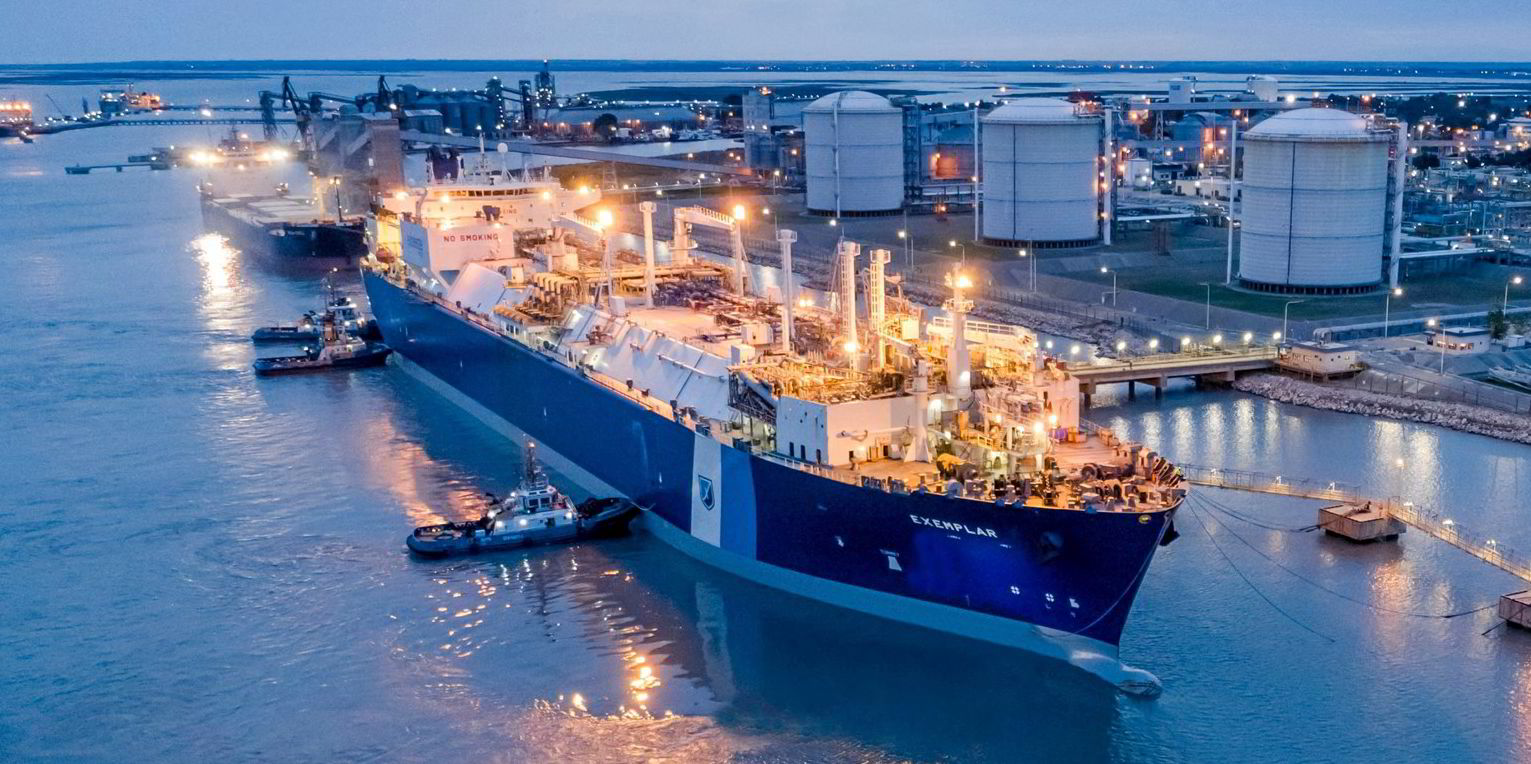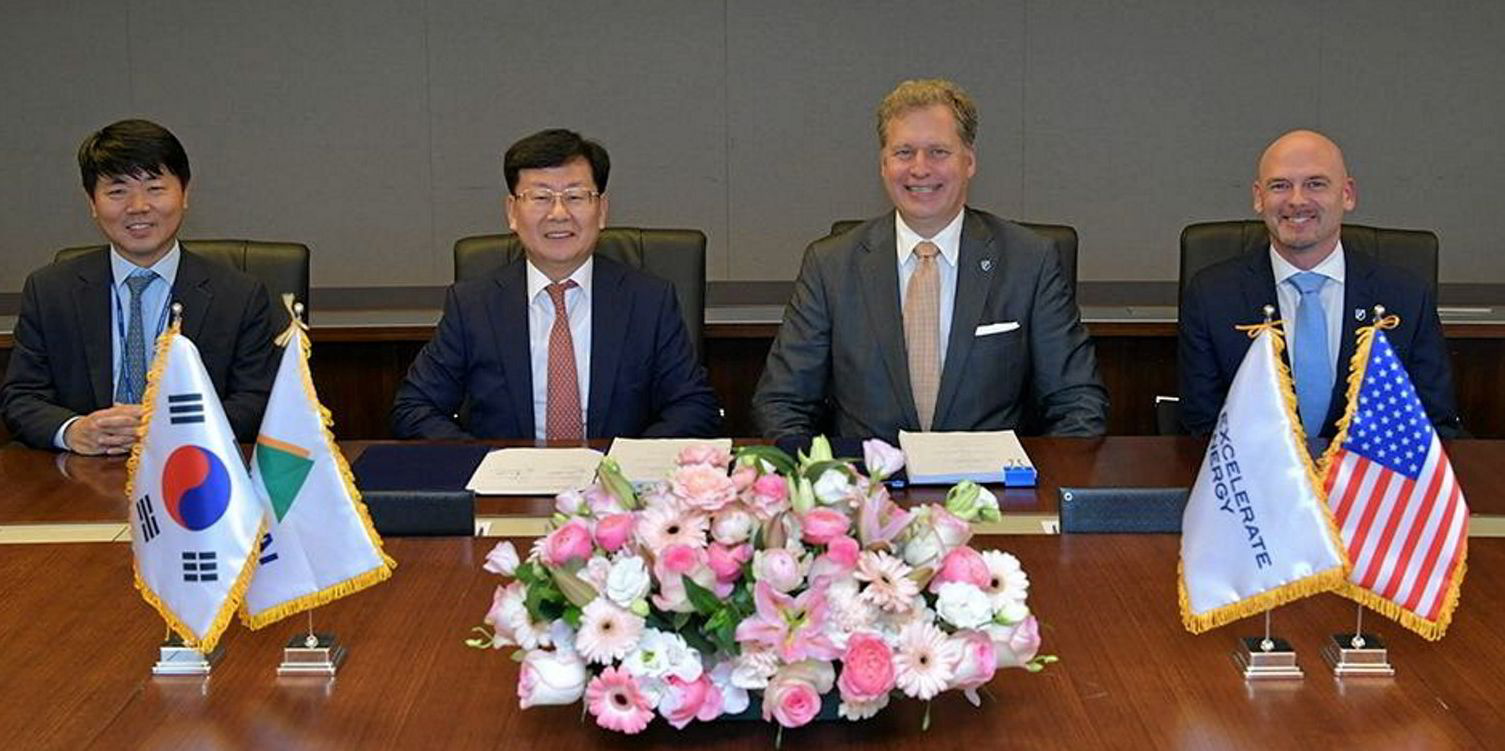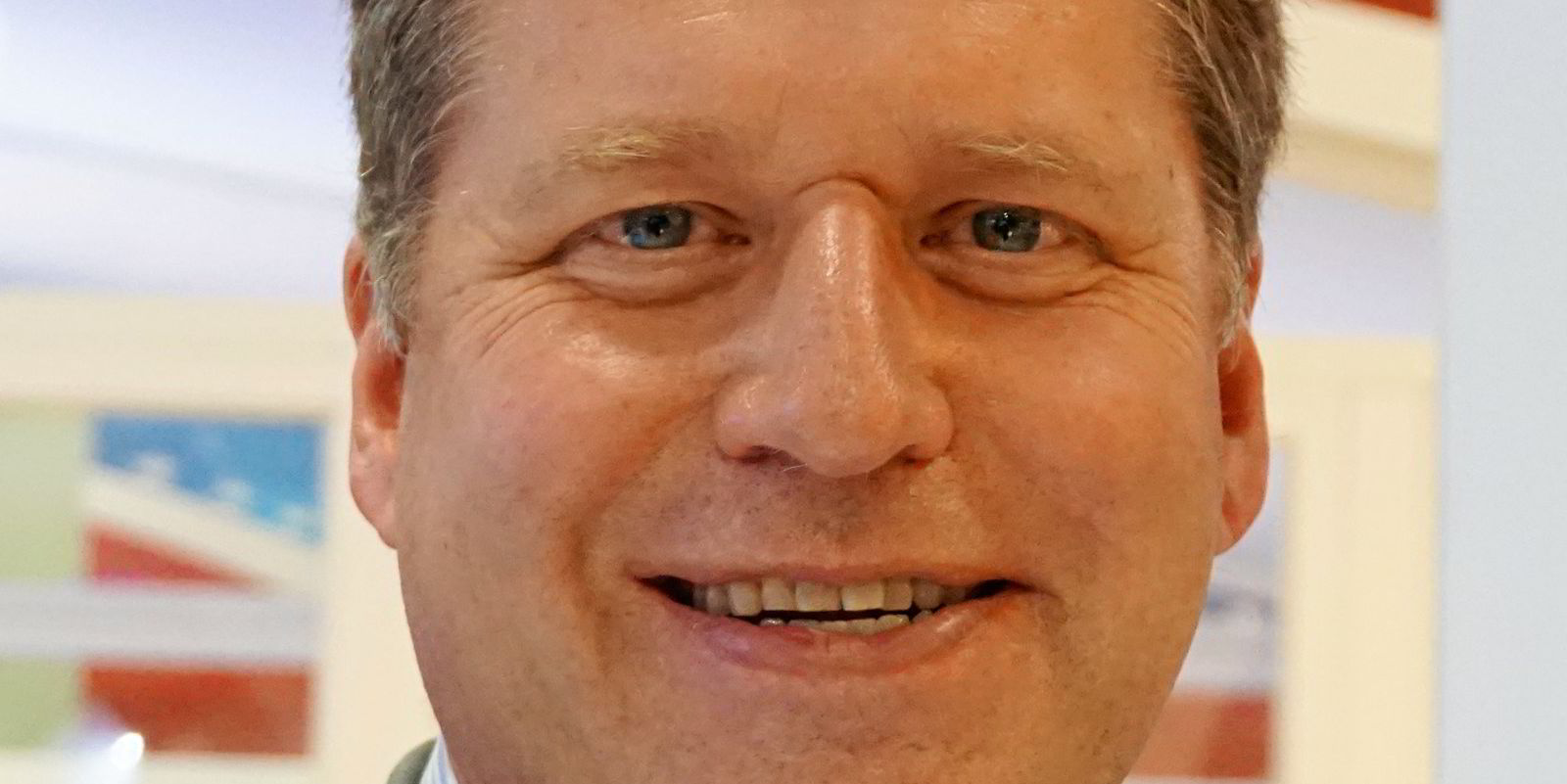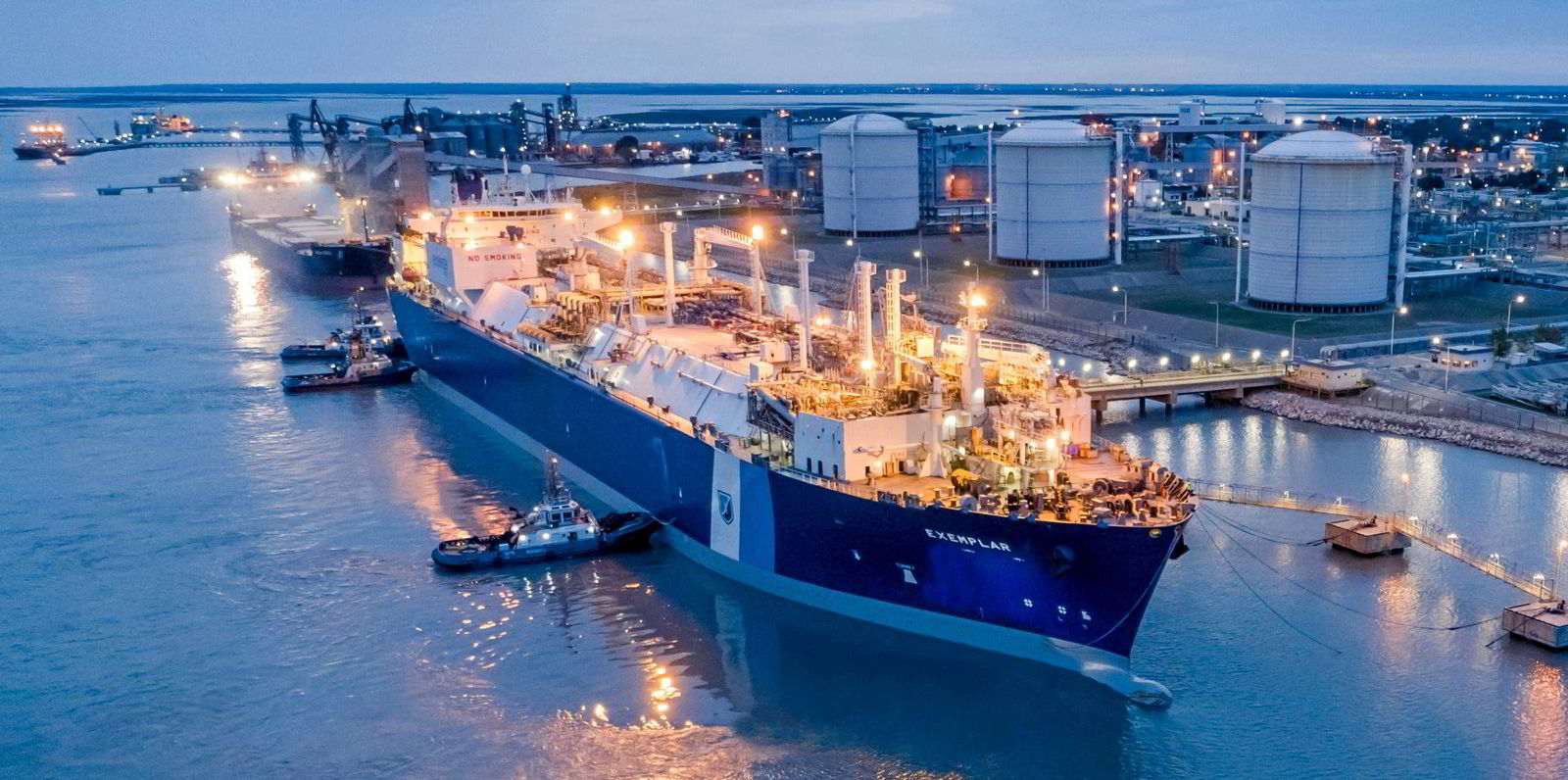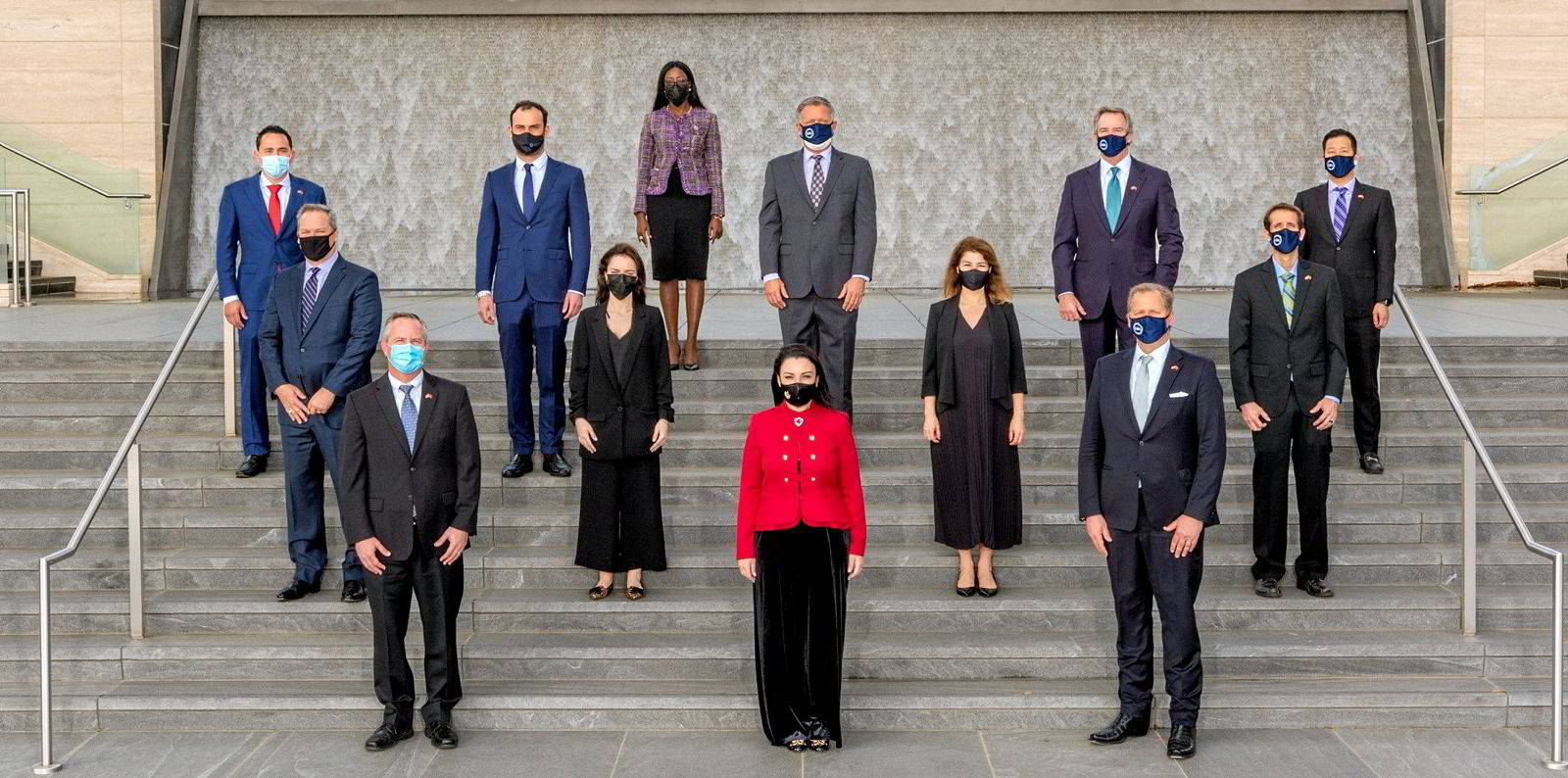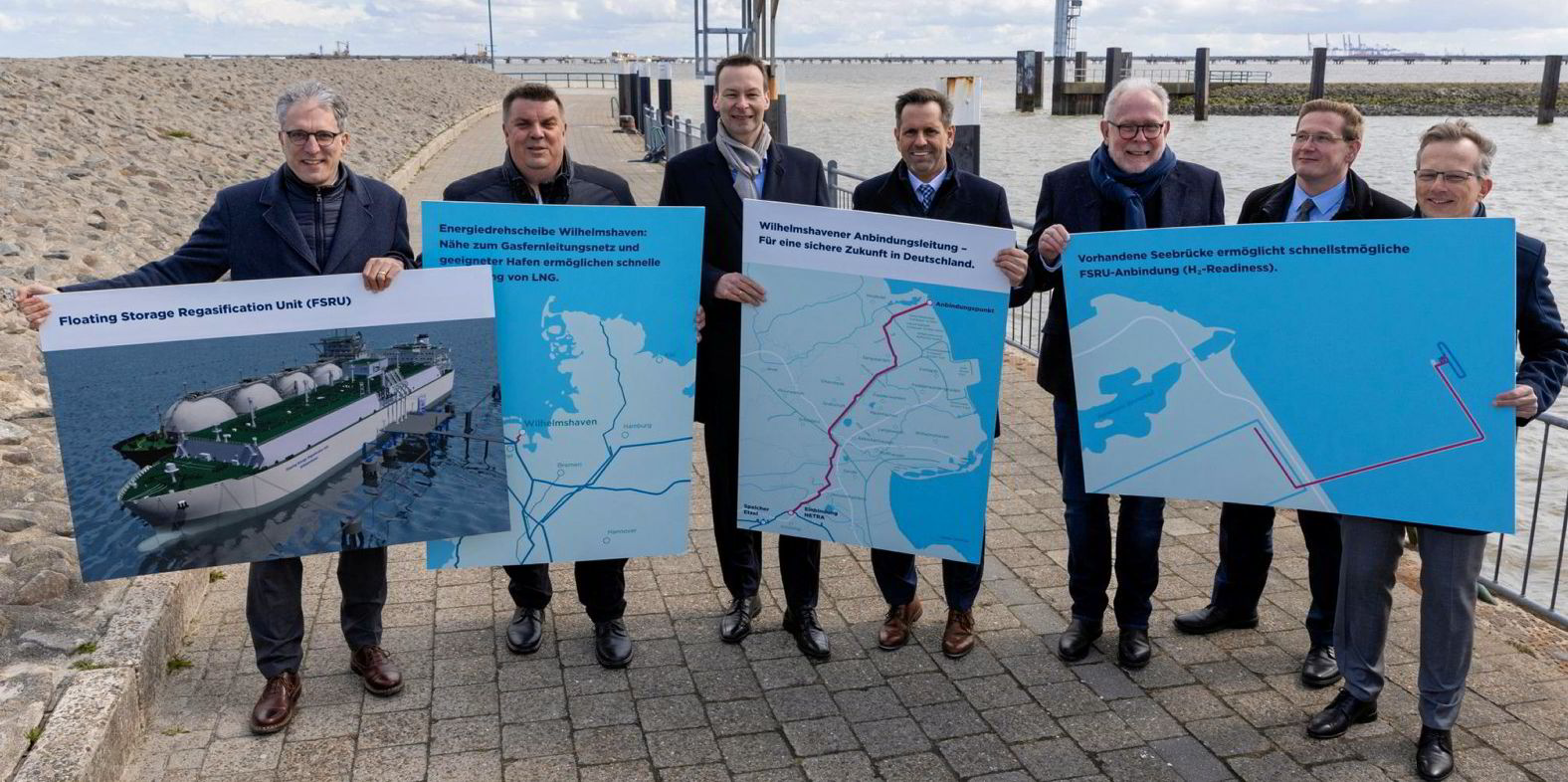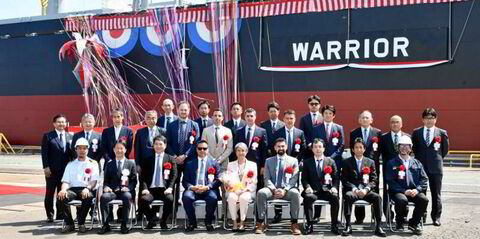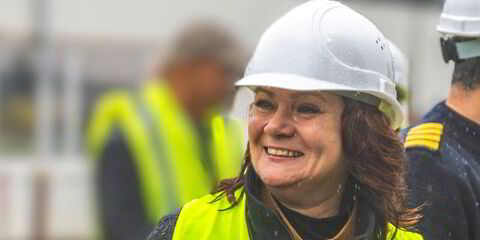Excelerate Energy excited gas-hungry, LNG tonnage-starved markets on 3 October after breaking the logjam by becoming the first shipowner to order a floating storage and regasification unit in more than three years.
The Houston-based company, which listed on the New York Stock Exchange in April, contracted a single 170,000-cbm FSRU at Hyundai Heavy Industries for delivery by June 2026, but at the yard-quoted eye-watering top dollar price of $337m.
TradeWinds has been informed by those following the business that Excelerate has an option for a second FSRU with the yard.
Industry watchers have been waiting years for Excelerate to start renewing or expanding its existing 10-ship FSRU fleet but the energy crisis in Europe appears to have given the company added focus.
Commenting on the order this week, Excelerate president and chief executive Steven Kobos highlighted that FSRUs help to provide energy security and complement “the intermittency” of renewables “at a time when the world needs FSRUs and flexible LNG infrastructure the most”.
Excelerate, like other FSRU providers, has actively responded to European demand and has committed to providing units for new projects in Finland, Germany and Albania.
With all this in play and existing customers in countries that include Bangladesh, Brazil and Argentina, Excelerate might have been expected to hang up the “sold out” sign, as its competitor Hoegh LNG has done.
Speaking to TradeWinds at the Gastech conference and exhibition in September, Excelerate commercial department vice president Oliver Simpson appeared reluctant to go that far.
“We have to consider the timeline,” Simpson said, admitting that while commercially he hates to say no to anyone, the company also has to be realistic.
He likened the rush in demand for FSRUs post-24 February as concerns peaked over Russian gas supply to Europe to the period following the 2011 Fukushima disaster, when LNG carriers were in high demand.
The VP said there have been requests that Excelerate has had to decline and it has had to pick its projects carefully as it moves to shift to more integrated downstream developments, which can prove more capitally intensive.
Excelerate has always preferred to keep the picture blurry on which of its FSRUs are going where. Simpson will only say that the company has certain charter contracts approaching their end or a renewal option and “other things down the line”, which give the company some flexibility.
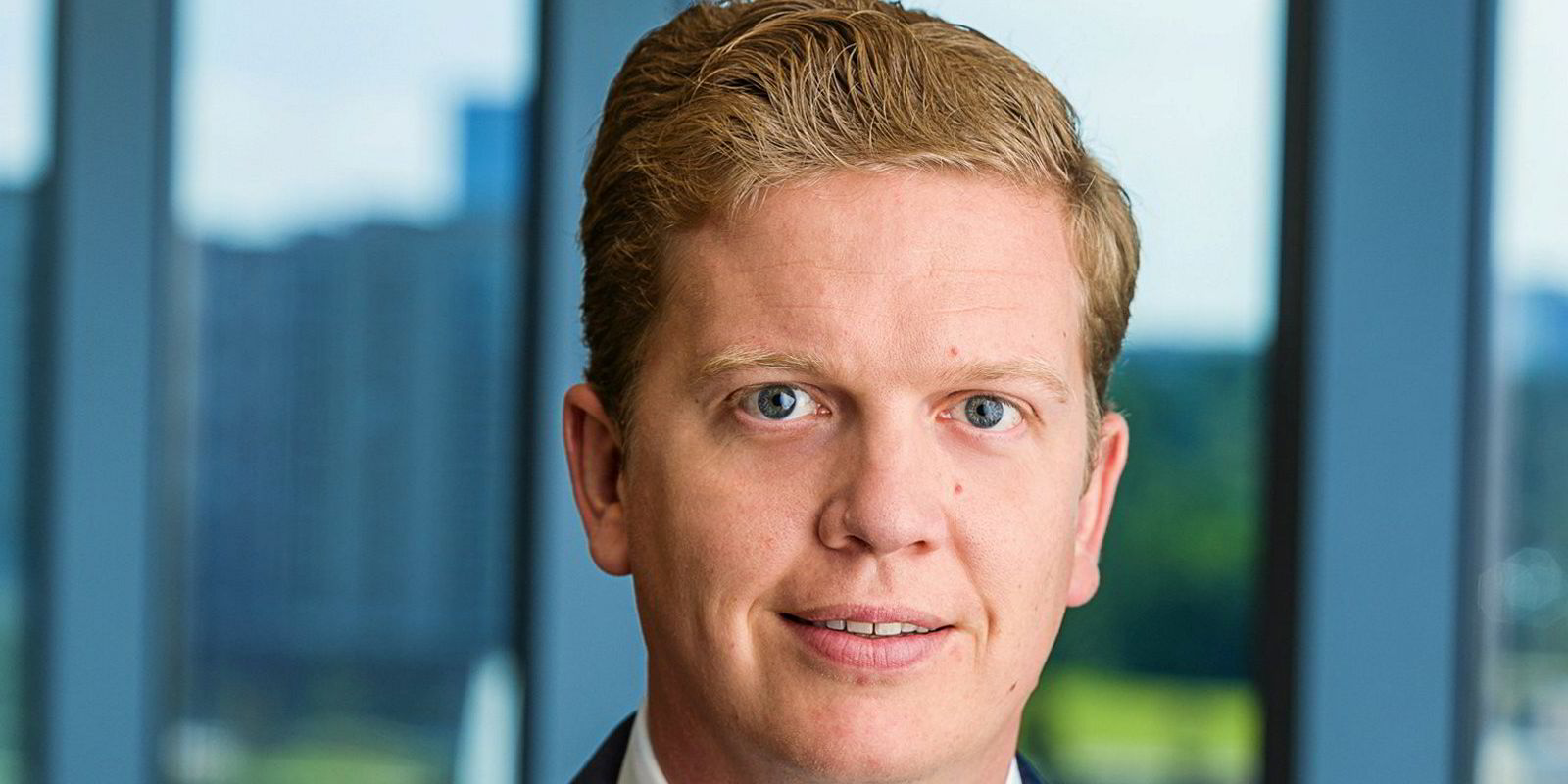
He said historically Excelerate has often started with an initial FSRU — as it has done for projects in Brazil and Dubai — and then moved on to put a more bespoke solution in place.
This is part of the business model the company will continue to look at for new projects, he added.
“On one hand, we are seeing in Europe that people need FSRUs yesterday but what is available might not exactly be what they need longer term.”
Simpson said Excelerate prefers to think of business in terms of projects, with the fleet as the enablers.
In its IPO, the company has been clear that it wants to shift further downstream.
“It’s a little move away from the shipowner mentality,” Simpson said.
He is keen to highlight the project for Finland and Estonia, where Excelerate’s 150,900-cbm FSRU Exemplar (built 2010) will provide 5bn cubic metres of regas capacity, which he said is more than the combined annual gas demand of both countries, while also providing security for that market.
“I’m not saying every project has to be like that, but it is certainly a project that materially makes a difference,” he said.
Simpson was less keen to put a figure on the number of FSRUs Excelerate may need. He said the company is targeting fleet growth but this will be a function of its project pipeline.
He does not rule out LNG carrier-to-FSRU conversions for this — although a speculative one is unlikely — but said these are often more complicated that they initially seem.
En vogue
With the heightened gas demand in Europe, Excelerate sees people saying FSRUs are now in fashion, Simpson said.
While Europe needs them now, he believes that non-OECD countries will likely prove the users in the longer term as they transition away from coal or put power generation in place.
Simpson believes LNG will still prove “very affordable” in the long-term, although he accepts that the current high prices may have shifted project timelines.
He said some potential customers have unrealistic expectations in terms of putting in infrastructure and getting access to LNG, believing that all that is needed is to get an FSRU, connect it and “you’re good to go”.
“It takes years to develop these markets,” he said, referencing the company’s work in Pakistan and Bangladesh, but adding, “It’s very rewarding once you do.”
